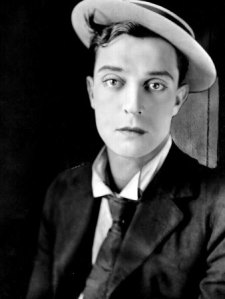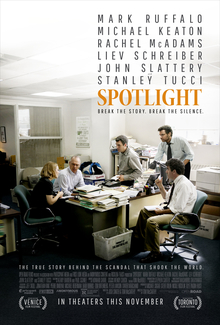 The Dublin International Film Festival recently finished. I always think it would be a great idea to take the week and a half it runs for off work and to spend the time going to film after film, but I never actually do this, instead just squeezing in a film here and there, usually only managing to look properly at the programme to pick films after the festival has started. Still, this year I managed to make four films, which by my standards is pretty good going. I did my usual thing of avoiding films that are about to receive a general release and aiming towards ones that are unlikely to ever darken the multiplexes, though I think at least one of the ones I saw could well become a surefire hit on the foreign language circuit.
The Dublin International Film Festival recently finished. I always think it would be a great idea to take the week and a half it runs for off work and to spend the time going to film after film, but I never actually do this, instead just squeezing in a film here and there, usually only managing to look properly at the programme to pick films after the festival has started. Still, this year I managed to make four films, which by my standards is pretty good going. I did my usual thing of avoiding films that are about to receive a general release and aiming towards ones that are unlikely to ever darken the multiplexes, though I think at least one of the ones I saw could well become a surefire hit on the foreign language circuit.
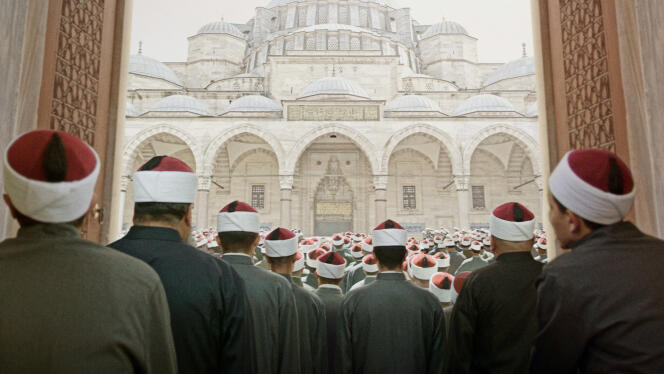 The first film I saw was Cairo Conspiracy (also known as Boy From Heaven), a recent film directed by Tarek Saleh, a Swedish filmmaker of Egyptian extraction. It is set in Egypt but was not filmed there; Saleh was expelled from Egypt when trying to shoot his previous film there, and the subject of Cairo Conspiracy is so sensitive that anyone trying to make it in the country would probably find themselves chucked in jail. So what's it about? Some explanatory text at the start quickly explains to whitey that in Cairo there is the Al-Azhar Mosque, which is the pre-eminent centre of Sunni Muslim scholarship and jurisprudence; the Al-Azhar's Grand Imam is the closest thing the Sunni world has to a Pope (but still not that close). Adam (played by Tawfeek Barhom), the son of a fisherman, wins a scholarship to study at the Al-Azhar, clearly a great opportunity for him. But then after he has commenced his studies, the Grand Imam dies. Egypt's security apparatus start manoeuvring to ensure that a pro-regime figure becomes the new Grand Imam. Adam finds himself recruited as a pawn by the secret police, initially to infiltrate an extremist clique of students and then to help elect the regime's candidate. His handler, played by Fares Fares, emerges as the film's other main character.
The first film I saw was Cairo Conspiracy (also known as Boy From Heaven), a recent film directed by Tarek Saleh, a Swedish filmmaker of Egyptian extraction. It is set in Egypt but was not filmed there; Saleh was expelled from Egypt when trying to shoot his previous film there, and the subject of Cairo Conspiracy is so sensitive that anyone trying to make it in the country would probably find themselves chucked in jail. So what's it about? Some explanatory text at the start quickly explains to whitey that in Cairo there is the Al-Azhar Mosque, which is the pre-eminent centre of Sunni Muslim scholarship and jurisprudence; the Al-Azhar's Grand Imam is the closest thing the Sunni world has to a Pope (but still not that close). Adam (played by Tawfeek Barhom), the son of a fisherman, wins a scholarship to study at the Al-Azhar, clearly a great opportunity for him. But then after he has commenced his studies, the Grand Imam dies. Egypt's security apparatus start manoeuvring to ensure that a pro-regime figure becomes the new Grand Imam. Adam finds himself recruited as a pawn by the secret police, initially to infiltrate an extremist clique of students and then to help elect the regime's candidate. His handler, played by Fares Fares, emerges as the film's other main character.
It is an intriguing film of plot twists and morally compromised people. I read in an interview that Saleh was very influenced by John le Carré and thought, "of course". What I found particularly fascinating was the way religion is portrayed positively in the film, something one sees quite rarely these days. Islam is presented as a source of wisdom and comfort, with Islamic study a self-evidently worthwhile activity (it is telling that when Adam wins his scholarship to study Muslim theology, his father's does not say, "Would you not consider studying a proper subject?"). None of the three leading candidates for the Grand Imam's position are presented as villains, not even the pro-regime candidate who would be the most obvious one to portray as the embodiment of cynical corruption. The most flawed of the three turns out to have a skeleton in his cupboard that does mark him out as someone guilty of not-great behaviour, but even here it felt a bit "hey, nobody's perfect" rather than an exposure of rank hypocrisy (other viewers might take a harder line).
The film is pretty blokey, which goes with the homosocial nature of the world in which it is set. Women only really figure as plot devices or the most thinly sketched of background figures. I think maybe a more fully Western filmmaker might have interrogated this a bit more, bringing up the question of why there only seem to be male imams. To me though, the taking of the way things are for granted seemed to situate the film more fully in its world.
The best line in the film is probably that uttered by one of the secret policemen at a meeting: "They made a big mistake when they started electing the Grand Imam for life. No one should ever hold a position for life. Apart from the President."
Apart from that all the films I saw in the festival were in Spanish (or maybe Catalan). First up was Patricio Guzmán's My Imaginary Country (originally Mi País Imaginario). The programme said that this was a documentary about protests that convulsed Chile during the repressive rule of Pinochet, whose reign ended in 1990. The film was actually about the protests that erupted in Chile in 2019, initially as a campaign by students against fare increases in the Santiago metro but eventually assuming a broader character, leading to mass protests, various campaigns of civil disobedience, and prolonged street battles between heavily armed riot police and stone throwing protesters. The film mixes footage of the protests and riots (some of it pretty full-on) with interviews with protesters (there were no interviews with cops, who remained a shadowy Other clad in body armour, hiding behind shields and occasionally emerging to fire tear gas canisters or to batter someone unlucky enough to fall into their clutches).
 The film was mesmerising and engaging, but I did feel it could have engaged a bit more critically with the protest movement. I was struck by the repetition of protesters that they didn't want anything to do with politicians, which to me felt like a weakness and an indication that they were locked into a protest rather than transformative mindset (I'm using "politicians" broadly here to encompass anyone who seeks to actually accomplish things rather than just protest against things other people are doing, so it would run the gamut from people currently in the electoral system, people who might enter that milieu, and also revolutionary groups outside the system but with concrete plans to restructure society). It was interesting also that the film made such a big deal about the convening of a constituent assembly to write a new basic law for Chile (to replace the one bequeathed by the Pinochet regime). The film must have been made before Chile's landslide rejection of the proposed new constitution (a bloated monstrosity of some 388 articles (Ireland's constitution has just 50)), an event that makes for an anticlimactic coda to the film's message.
The film was mesmerising and engaging, but I did feel it could have engaged a bit more critically with the protest movement. I was struck by the repetition of protesters that they didn't want anything to do with politicians, which to me felt like a weakness and an indication that they were locked into a protest rather than transformative mindset (I'm using "politicians" broadly here to encompass anyone who seeks to actually accomplish things rather than just protest against things other people are doing, so it would run the gamut from people currently in the electoral system, people who might enter that milieu, and also revolutionary groups outside the system but with concrete plans to restructure society). It was interesting also that the film made such a big deal about the convening of a constituent assembly to write a new basic law for Chile (to replace the one bequeathed by the Pinochet regime). The film must have been made before Chile's landslide rejection of the proposed new constitution (a bloated monstrosity of some 388 articles (Ireland's constitution has just 50)), an event that makes for an anticlimactic coda to the film's message.
I was also struck by what an ugly looking city Santiago seemed to be, a collection of nondescript high-rise buildings that seem to have missed all of the interesting and controversial trends of 20th century architecture. But maybe that is unfair as the film may have avoided the good bits. And I was also left wondering about how it is that in some countries you have heavily armed cops using tear gas and water cannon against protesters when this never happens here (at least not on this side of the Border).
My Imaginary Country featured a lot of drone footage, something that is fast becoming a documentary cliche. Guzmán does at least have the excuse that drone footage makes it less likely that cameramen will be battered by the cops or lose an eye after being shot in the face with a tear gas canister, as happened to some of the people the film interviews.
Iván Zulueta's Arrebato (The Rapture) is a 1979 Spanish film that was shown in late night screening. I was wondering before going into this whether I would have enough wakefulness to be able to fully appreciate it. Truth be told I did not, struggling at times to stay awake and feeling like I missed some key plot details. But I still liked it a lot, finding it intriguingly enigmatic. It is one of those films about people who make films, with one of the main characters being a director of horror films and another a weirdo kid who shoots films on Super 8 format. The two met twice in the past (scenes presented in flashback) and then the horror director receives a package with footage shot by the kid and a key to an apartment, with a note saying that the kid suspects he will not be able to send the last part of his film. And it turns out to be a film about… a haunted camera or celluloid vampires or something like that, but it's more about the atmosphere than the plot.
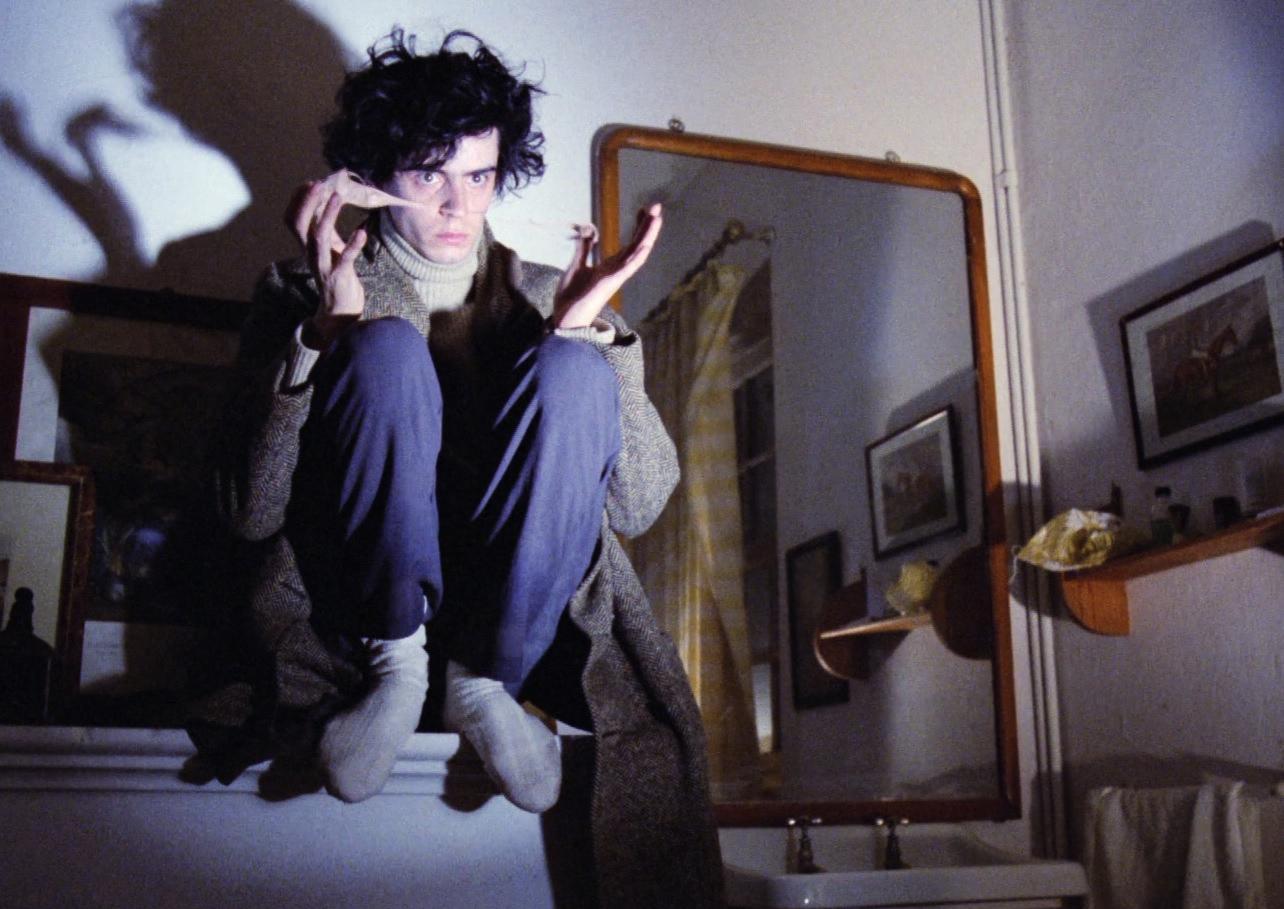 While billed as an art house horror film, Arrebato felt more like a series of character studies. The film maker and his sometime girlfriend's slide from casual narcotic use to full addiction nicely mirrors the actual horror stuff (which is pretty low key and oblique, at no point features any of that "they jump at you face" shite). The sound design and ominous electronic soundtrack also work very well together. It might be one to watch again when I am not falling asleep, although my narcotic state worked well with a film where the bad thing happens when the kids sets his camera to record him while he sleeps.
While billed as an art house horror film, Arrebato felt more like a series of character studies. The film maker and his sometime girlfriend's slide from casual narcotic use to full addiction nicely mirrors the actual horror stuff (which is pretty low key and oblique, at no point features any of that "they jump at you face" shite). The sound design and ominous electronic soundtrack also work very well together. It might be one to watch again when I am not falling asleep, although my narcotic state worked well with a film where the bad thing happens when the kids sets his camera to record him while he sleeps.
The last film I saw was Modelo 77 (listed in the programme under the English title Prison 77). Directed by Alberto Rodríguez, this is set in Spain at around the same time period in which Arrebato was made. However, it might is effectively set in a different world, as this is a prison film whose action almost entirely takes place within the walls of the Carcel Modelo in Barcelona (where it was filmed, the prison having closed in 2017). The film is inspired by real events that occurred during the Transition period following the death of Franco in 1975, specifically an outbreak of radicalism and escape attempts from Spanish jails. However, the characters in the film are fictional and do not correspond to real people. The main protagonist is Manuel (Miguel Herrán), a young accountant, who has been arrested for embezzling money from his employer and is being held in jail pending his trial, which could be years away and is likely to see him given a long sentence.
The film does not really delve into whether Manuel is innocent or not (at one point he makes a somewhat feeble claim about the money being an advance on his wages, but it does seem to be the case that his employer is greatly exaggerating how much he took, for insurance fraud reasons, which in turn means that Manuel will receive a longer sentence when his case eventually goes to court). But whether innocent or guilty, Manuel finds himself facing an inhumane regime of casual brutality, in which thuggish guards dish out violence to anyone they take a dislike to. Manuel falls in with some of the more radical prisoners, and together they start agitating for improved conditions and even a general amnesty. In the context of the times, amnesty does not seem like a completely insane thing to aim for. Early on we see the political prisoners amnestied ("They stay in their separate groups, arguing with each other", another prisoner notes of them before that), which makes the general prisoners think that they must be next. The non-political prisoners were after all convicted by Franco's mickey mouse courts or, like Manuel, have not actually been convicted of anything; some of the others are inside for sexual crimes of a victimless nature.
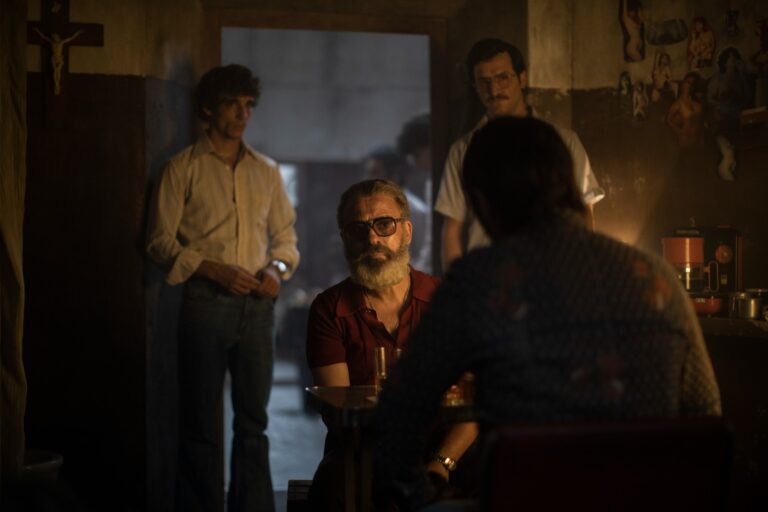 The claustrophobic setting of the jail mean that a film like this stands or falls on its performances, and Modelo 77 does well with Herrán as Manuel, Jesús Carroza as El Negro (an old lag who takes him under his wing), and Javier Gutiérrez as Pino (Manuel's science fiction reading lifer cellmate), who all put in strong performances, as does Xavi Sáez as an imprisoned doctor who provides the initial impetus for the prisoners' organising. But the film also benefits from a plot that twists and turns as the prisoners and the authorities struggle against each other, and from some stunning action sequences and scenes of visceral violence. It also looks amazing, with Alex Calalán's cinematography giving the film an appealingly bleached out appearance.
The claustrophobic setting of the jail mean that a film like this stands or falls on its performances, and Modelo 77 does well with Herrán as Manuel, Jesús Carroza as El Negro (an old lag who takes him under his wing), and Javier Gutiérrez as Pino (Manuel's science fiction reading lifer cellmate), who all put in strong performances, as does Xavi Sáez as an imprisoned doctor who provides the initial impetus for the prisoners' organising. But the film also benefits from a plot that twists and turns as the prisoners and the authorities struggle against each other, and from some stunning action sequences and scenes of visceral violence. It also looks amazing, with Alex Calalán's cinematography giving the film an appealingly bleached out appearance.
If you only go to films that pass the Bechdel test then a film set in a men's prison is probably not for you. Modelo 77 has precisely one female character, a woman called Lucía, played by Catalina Sopelana. At the start of the film she is visiting Manuel as the sister of his girlfriend, or rather ex-girlfriend, as Lucía's sister decides she can't handle the idea of being a prisoner's girl. Lucía keeps visiting Manuel out of compassion and provides the film's main link between the world of the prison and the outside world (for all that we only ever see her behind a glass screen in the visiting room). The film is not about her, so I don't think it needs to delve too deeply into the why of her continuing to visit Manuel or her life outside the jail. Nevertheless I still felt that the character managed to rise above being Token Female Character, but your mileage may vary.
Anyway, I can't really praise Modelo 77 enough. It is a long film, but it uses its length well. If it ever shows up in your local cinema I encourage you to see it on the big screen, but it would probably still hold its own on the small screen in your home.
images:
Istanbul's Süleymaniye Mosques stands in for Al-Azhar (Le Monde: "Boy from Heaven: Dissecting contemporary Egypt in the guise of a spy thriller")
Feminist protesters: the rapist is YOU (Filmkrant: "Mi país imaginario: Blauwdruk voor de revolutie")
Will More in Arrebato (FilmAffinity: "Rapture 1979")
Miguel Herrán, Javier Gutiérrez, & Xavi Sáez meet the big bad prisoner (filmAnd: "Modelo 77 de Alberto Rodríguez llega a los cines el 23 de septiembre")

